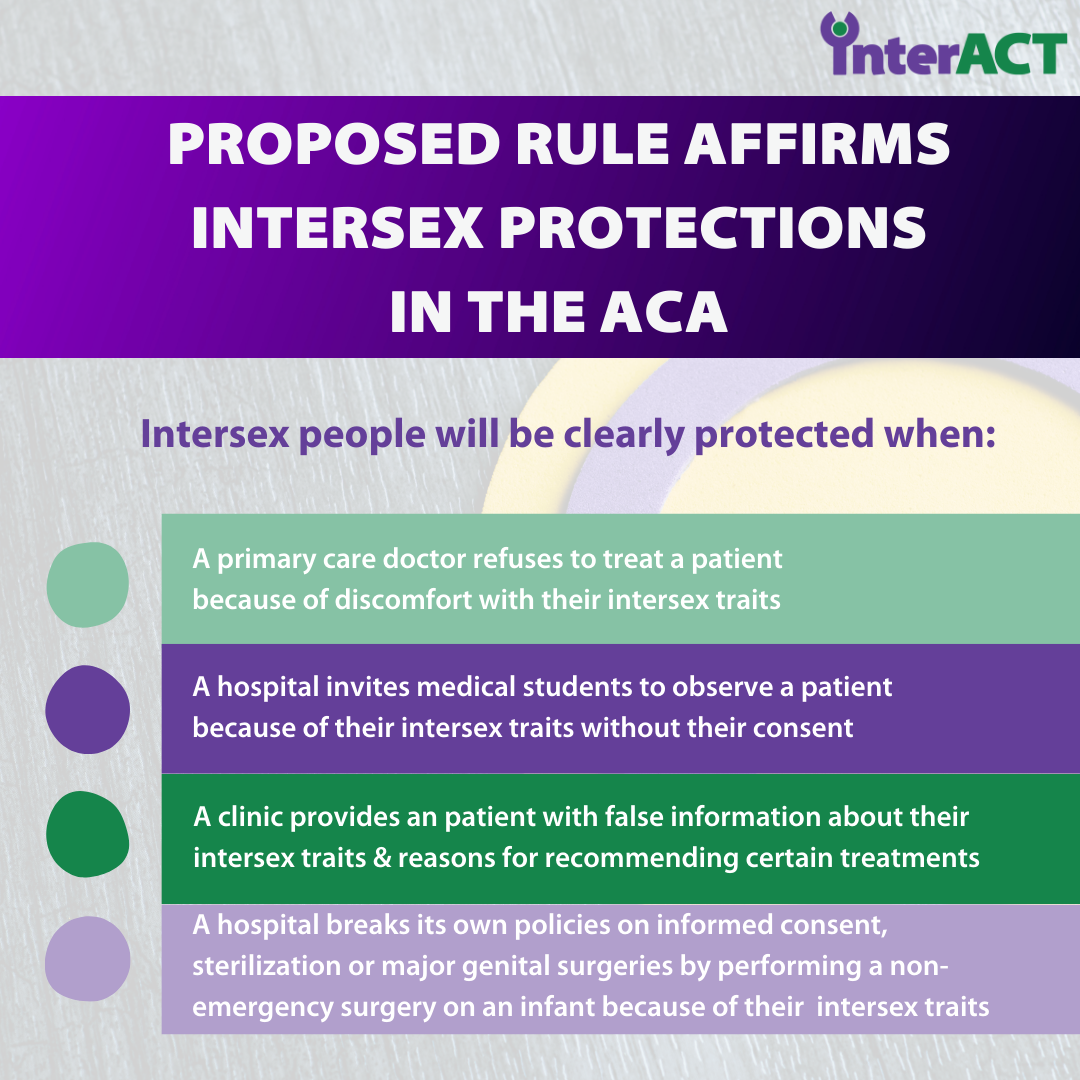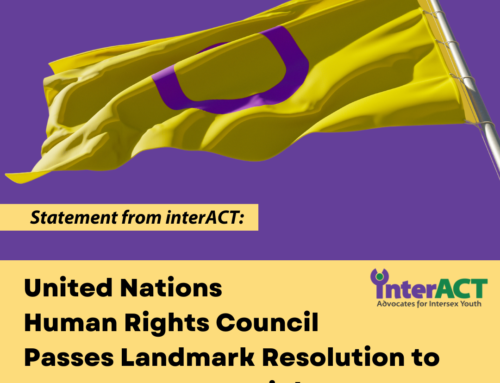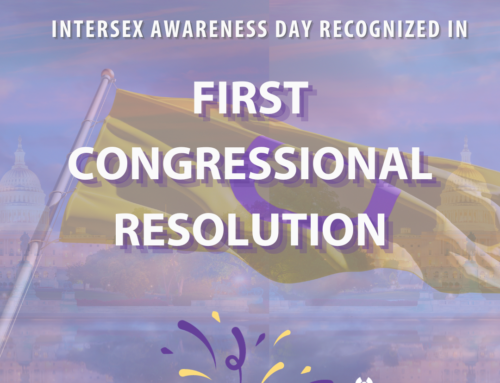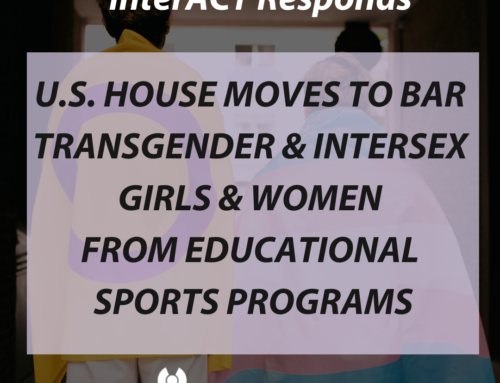For Immediate Release. PDF available here.
Press contact: Maddie Moran, Director of Communications. [email protected]
The US Department of Health and Human Services (HHS) has released its proposed rule on the Affordable Care Act’s nondiscrimination protections, making clear that discrimination against intersex people within federally funded health programs is prohibited. Under the proposed rule, sex discrimination is defined to explicitly include discrimination based on pregnancy and related conditions, sexual orientation, gender identity, sex stereotypes, and sex characteristics, including intersex traits. For example, it makes clear that the ACA makes it unlawful to deny an intersex patient preventive screenings or hormone therapies because of their intersex traits or because of a provider’s reliance on binary sex stereotypes.
 Today’s proposed rule follows the Department of Education’s similar proposed rule on Title IX last month, making clear the federal law prohibits discrimination against intersex students. HHS first announced it would interpret Section 1557 of the ACA to prohibit anti-intersex discrimination in the preamble to the 2016 rules. Today’s proposal would spell out this protection in the regulations themselves, while also restoring provisions on anti-transgender discrimination that the Trump Administration rescinded. Both the Title IX and ACA rules rely on Supreme Court precedents including Bostock v. Clayton County, Ga. (2020), and make clear that their logic applies equally to people with intersex variations. HHS also adopted rules prohibiting discrimination based on sex characteristics in federally funded family planning clinics last fall.
Today’s proposed rule follows the Department of Education’s similar proposed rule on Title IX last month, making clear the federal law prohibits discrimination against intersex students. HHS first announced it would interpret Section 1557 of the ACA to prohibit anti-intersex discrimination in the preamble to the 2016 rules. Today’s proposal would spell out this protection in the regulations themselves, while also restoring provisions on anti-transgender discrimination that the Trump Administration rescinded. Both the Title IX and ACA rules rely on Supreme Court precedents including Bostock v. Clayton County, Ga. (2020), and make clear that their logic applies equally to people with intersex variations. HHS also adopted rules prohibiting discrimination based on sex characteristics in federally funded family planning clinics last fall.
With the new proposed rule, HHS today takes action to ensure all patients and providers understand that discrimination based on a person’s sex characteristics, including intersex traits, is unlawful. While the proposed rules setting forth HHS’s interpretation are now open for public comment, this interpretation of laws prohibiting discrimination “on the basis of sex” is becoming standard in federal rules, legal guidance, and proposed legislation, and anyone facing discrimination can already file a complaint.
interACT: Advocates for Intersex Youth celebrates this as a civil rights victory for all LGBTQI+ people, including the many children with variations in their sex characteristics who are vulnerable to discrimination and harm in medical settings.
“We are pleased to see this administration affirm that intersex people deserve access to care free from discrimination,” says interACT’s Executive Director Erika Lorshbough. “People with intersex traits can face various forms of discrimination in healthcare settings, from harassment to outright denial of care. Intersex adults can be misled by doctors about the existence or nature of their own intersex characteristics, and young children are too often subjected to unnecessary, nonconsensual genital surgeries because of bias against their sex trait variations. This rule is an important step toward a future where people with intersex traits are never treated with anything less than the dignity and respect we all deserve.”
Antidiscrimination protections are especially urgent for LGBTQI+ people in this perilous moment, as states have enacted new, discriminatory laws. Among these draconian measures, state laws banning the affirming care that transgender adolescents want and need compound injustice by explicitly allowing the nonconsensual surgeries that harm young intersex children to continue. interACT eagerly anticipates the enforcement of federal protections to address the continued practice of discriminatorily imposing unwanted interventions on intersex youth on the basis of their sex characteristics.
interACT encourages anyone who faces discrimination in health care based on their sex characteristics to file a complaint with HHS or the relevant federal civil rights office. Intersex patients can also file a complaint with HHS for violations of their right to privacy of, and access to, their own health rercords. Intersex people can also file a federal complaint for discrimination in other areas such education, employment, housing, or programs funded by the Department of Justice.





